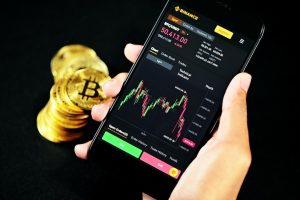Forex trading is a global market that is decentralized and involves the buying and selling of currencies. The market is open 24 hours a day, five days a week, and is the largest financial market in the world, with an average daily turnover of over $5 trillion. The forex market is made up of different participants, including banks, financial institutions, corporations, governments, and individual investors. In this article, we will delve into the percentage of banks in forex trading and their role in the market.
Banks are the largest players in the forex market, accounting for over 50% of the daily trading volume. They play a critical role in the market, as they act as intermediaries between buyers and sellers, providing liquidity and facilitating transactions. Banks are also responsible for setting exchange rates, which are used by traders to determine the value of one currency against another.
Banks participate in forex trading in different ways. They can trade on behalf of their clients or themselves, depending on their business model. Banks can also act as market makers, offering buy and sell prices to their clients and profiting from the bid-ask spread. Market makers make money by buying currencies at a lower price and selling them at a higher price, which creates liquidity in the market and ensures that buyers and sellers can find counterparties for their transactions.
Banks also participate in forex trading through their trading desks, which are responsible for executing trades on behalf of the bank or its clients. Trading desks use sophisticated trading algorithms and technology to analyze market data and execute trades quickly and efficiently. They also manage the bank’s risk exposure by hedging their positions and using derivatives to mitigate market risk.
The role of banks in forex trading is not limited to trading activities. They also provide a range of other services to their clients, including foreign exchange hedging, currency risk management, and trade finance. These services are essential for businesses that operate in multiple currencies and need to manage their exposure to currency fluctuations.
Banks also play a crucial role in the global economy by facilitating international trade and investment. They provide financing to businesses and governments, enabling them to invest in new projects and expand their operations. Banks also provide foreign currency loans to businesses that need to finance their operations in a foreign currency. These services are critical for the growth and development of the global economy.
In conclusion, banks are the largest players in the forex market, accounting for over 50% of the daily trading volume. They play a critical role in the market, providing liquidity, facilitating transactions, and setting exchange rates. Banks participate in forex trading in different ways, including trading on behalf of their clients or themselves, acting as market makers, and using sophisticated trading algorithms and technology to execute trades quickly and efficiently. Banks also provide a range of other services to their clients, including foreign exchange hedging, currency risk management, and trade finance. These services are essential for businesses that operate in multiple currencies and need to manage their exposure to currency fluctuations. Overall, banks are a critical component of the forex market and the global economy.






